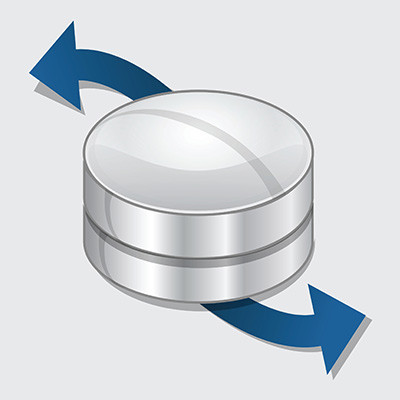Every business’ worst nightmare is a data loss incident, and if you’re caught unawares, such an incident can set you back financially and operationally for months. Today, we want to cover some of the common data your business collects that you absolutely need to have backed up. If you don’t, you could become subject to serious fines due to regulations and other industry-specific mandates.
IC Data Communications LLC Blog
Nowadays, businesses need to be prepared for almost every circumstance. You may have heard the term “BDR” used to describe a method of attaining this level of preparation. We wanted to discuss this term in more depth, covering what it refers to and what you need to do to protect your business should BDR be right for you.
Spoiler alert: it very much is.
How often do you think about your data backup system? If you’re like most businesses, it’s something that you will likely set up, then quickly forget about, provided you haven’t had to use it. Still, having one is essential to any modern business, and building it with clear outcomes and metrics in mind will help you make your data backup system more effective for the moments when you’re glad you have it.
Business technology is known to be remarkably finicky, particularly if you do not have the requisite knowledge to manage and maintain it. After all, there is a reason why you hire an IT department or a managed service provider to handle this role. What happens if your technology fails, though? Do you have a plan in place? What does a plan like this even look like, anyway? Let’s dig into the details.
Your business’ backup and disaster recovery preparations are a critical part of your continued success as an organization, specifically, how they are measured by two key metrics: your recovery time objective (RTO) and your recovery point objective (RPO).
However, it’s important that you are able to determine what your organization can support in terms of your recovery time and recovery point objectives… but how does one do that?
In an era where businesses rely heavily on data and technology, the need for comprehensive disaster recovery solutions has never been more critical. The stakes are high when it comes to safeguarding your company's digital assets and ensuring business continuity in the face of unforeseen disasters. This is where Disaster Recovery as a Service (DRaaS) comes into play.
To safeguard your organization's invaluable digital assets, you must undertake a task that, in most other business aspects, is often avoided: building redundancy. Redundancy, though typically viewed as wasteful, takes on a critical role when it comes to safeguarding your data, which is the lifeblood of your business.
Having data redundancy is something that sounds like a bad thing. After all, redundancy is typically viewed as a reason for inefficiency. In the case of having your data and computing environments backed up, you are trying to build redundancy. Today, let’s take a look at some situations that a business can run into should they neglect to have a proper backup.
Data backup is a must-have for every business, but it isn’t enough to just copy your data. You will need to have a data recovery strategy in place to ensure that your business can effectively respond after a data loss incident. Today, we’ll take a look at why considering your recovery strategy early is important, and how to prioritize it with everything else going on with your business.












